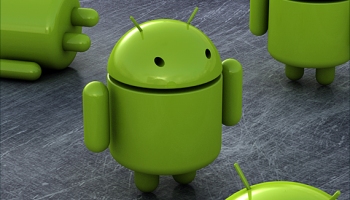Google’s Android operating system has extended its lead in the smartphone charts according to the first quarter figures from analyst house Gartner.
It found that 36.2 million smartphones based on the open-source operating system had been sold worldwide in the first quarter.
This means that Android grabbed 36 percent market share, compared with 27.4 percent from Nokia Symbian, the OS it replaced in late 2010 as the world’s leading smartphone platform.
Android And iOS
Apple’s iOS came in third with 16.8 percent of the market. Research in Motion hit 13 percent share for the quarter. Microsoft Windows accounted for a 3.6 percent share.
These numbers highlight a positive trend for Android and iOS and negative trends for the rest of the top 5 smartphone platform makers.
 Android, which Google executives said is being activated on 400,000 devices daily, tripled its market share from Q1 2010, with Samsung, HTC and Motorola shipping the lion’s share of these phones. iOS sold 16.8 million iPhones, more than doubling the 8.2 million it sold in Q1 2010.
Android, which Google executives said is being activated on 400,000 devices daily, tripled its market share from Q1 2010, with Samsung, HTC and Motorola shipping the lion’s share of these phones. iOS sold 16.8 million iPhones, more than doubling the 8.2 million it sold in Q1 2010.
However, Nokia saw its Symbian share plummet from 44.2 percent a year ago. RIM dropped from 19.7 percent share and shows no signs of halting that fall after a weak smartphone showing at Blackberry World earlier this month. RIM said it is migrating its BlackBerry portfolio to the QNX platform in 2012.
Windows Decline
Windows share is almost less than half its 6.8 percent share from a year ago. Of the 3.6 million phones it sold worldwide in Q1, only 1.6 million were based on the company’s new Windows Phone 7 platform.
Gartner said the first Windows Phone 7 devices failed to catch on as consumers bought Android phones for the holiday season.
To be fair, Android didn’t move so quickly out of the gate in 2008, and didn’t catch fire until the first Motorola Droid appeared in November 2009. So Windows Phone has time.
Moreover, Nokia is sunsetting Symbian to build Windows Phone devices, which will hit the market in 2012 and should accelerate the platform’s momentum, said Gartner.
Until then, Gartner analyst Roberta Cozza said the demise of Symbian will trigger a gold rush for mid-tier market share by Android, RIM and others.
App Importance
Interestingly, Cozza singled out application downloads and web applications as singularly important for boosting platform loyalty, noting that every time a user puts an application on their handset, they are “committing to a particular ecosystem and reducing the chances of switching to a new platform.”
This is effectively a lock-in by convenience, which is why Apple has pushed its App Store so hard and why Google is trying to push the Android Market with force this year. “This is a clear advantage for the current stronger ecosystem owners Apple and Google,” Cozza noted.
Overall, Gartner said the smartphone market remains healthy, accounting for 23.6 percent of the 427.8 million phones sold in Q1. The firm expects the fresh mid-tier smartphone market will drive smartphones into mass adoption.





